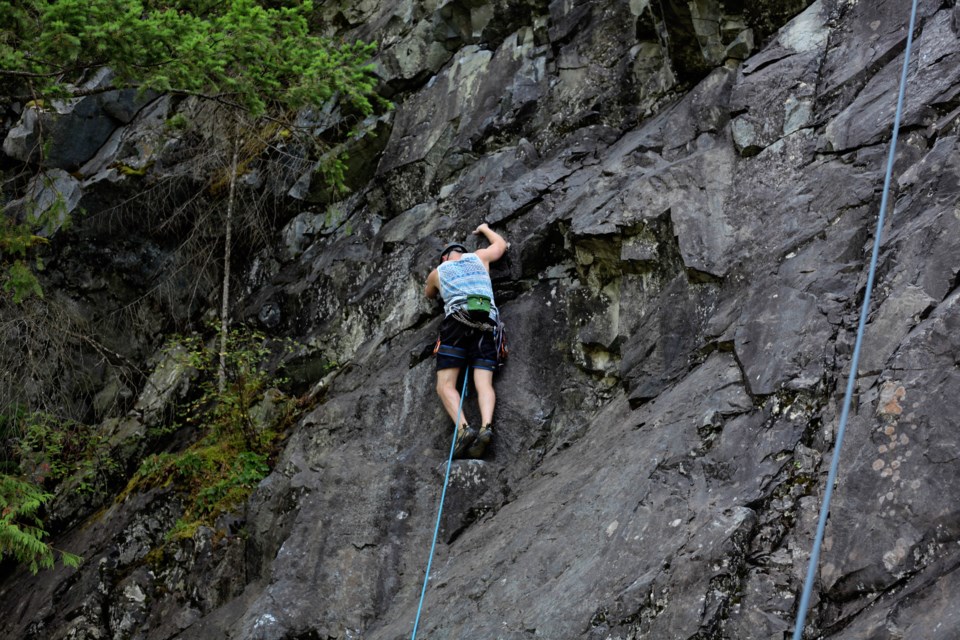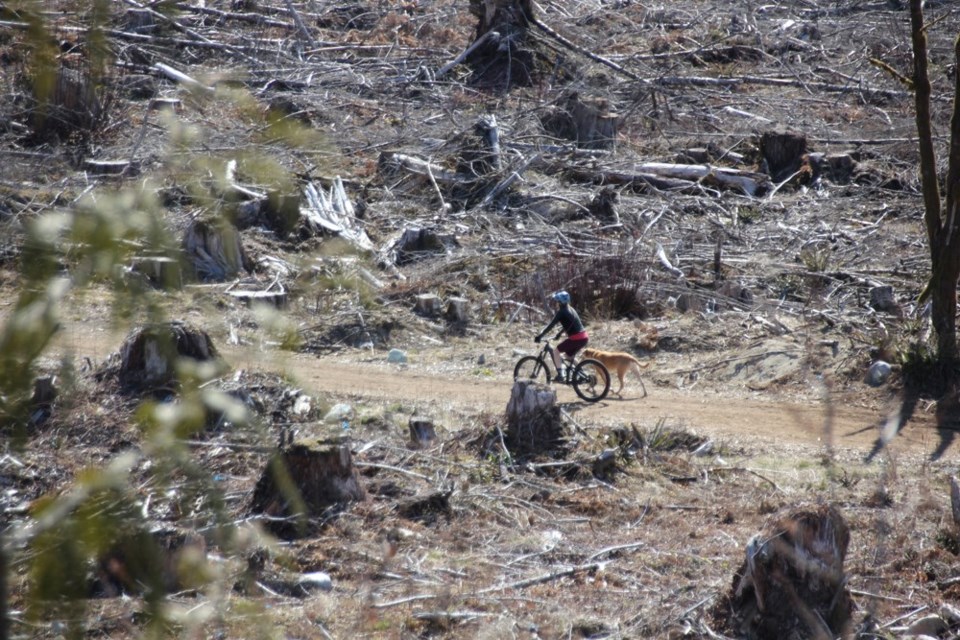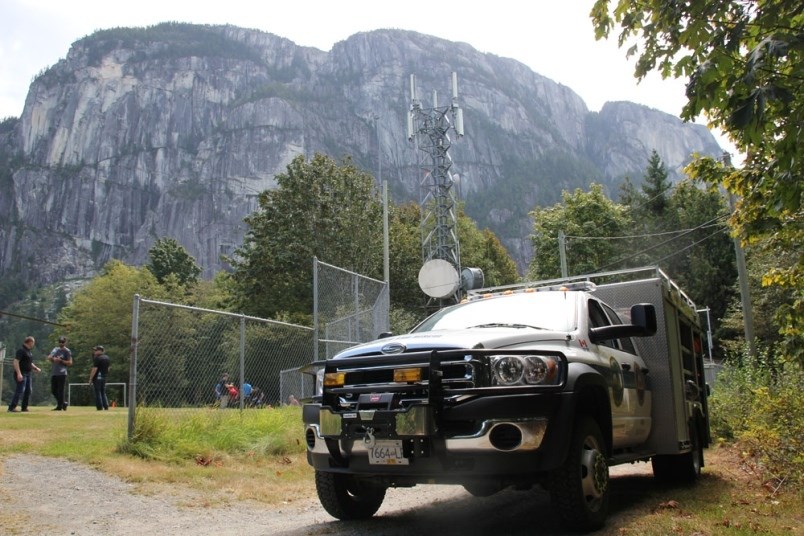*UPDATE: Since this story was first published, the Squamish Access Society has asked people not to climb in Squamish as of March 20.
For many in Squamish, the idea of being cooped up inside during self-isolation or social distancing is at odds with why they live here, but during the time of the COVID-19 pandemic, extra measures are required to keep everyone safe.
The provincial health officer Dr. Bonnie Henry said, in her March 13 update on the COVID-19 situation, that the virus isn't airborne and doesn't transmit outdoors. People can spend time outside, although should practice social distancing, wash hands regularly and stay home if they feel sick.
Shortly after that announcement, Squamish access and recreation groups began telling their members to be responsible as they play outside.

Rock Climbing
In the climbing community, the Squamish Access Society put out a statement on March 17, reminding climbers to be diligent about checking the safety of their gear systems and dial down their climbing to reduce strain on healthcare.
In terms of social distancing, the society recommended "avoid adding to the crowd if you show up to a crag that's starting to get busy. If you decide to climb, please consider climbing only with partners, roommates, coworkers or close friends to reduce the amount of people you are in close proximity to."
On Facebook, a local group changed its name to "(Don't do any) Squamish Rock Climbing (because you'll spread COVID-19)" after much discussion about if anyone should be climbing outside during the pandemic.
While The Chief couldn't reach healthcare professionals to confirm whether rock climbing can put someone at risk of spreading or coming into contact with the novel coronavirus, Quest University life sciences and epidemiology professor Negar Elmieh said a study published on March 17 showed COVID-19 has "surface stability."
In an email, Elmieh said COVID-19 can remain active between three hours and three days on plastic surfaces. While she notes the maximum time refers to how long it takes the virus to become completely inactive, Elmieh said "the true duration will depend on how much of the virus lands on the surface…
"In terms of Squamish, and rock… I would say that based on what we do know, the virus likely lasts a few hours on rock surfaces but that the risk of transmission is likely low especially if folks are diligent about social distancing, practicing good hygiene (washing their hands with water/soap or hand sanitizer after recreating outside), and to stay at home if they're sick (that way your virus, whatever it may be, just won't land on the rock to begin with)."
Of higher concern are objects such as door handles, she said.

Golf and biking
The Squamish Valley Golf Club closed the clubhouse on March 17, followed by the closure of the golf course on March 19. A statement by general manager Scott Wengi said they are working to make the closure as minimal as possible, and plan to reopen on March 26.
On March 16, the Squamish Off-Road Cycling Association addressed the biking and trail community, asking users to enjoy the outdoors while making conservative decisions.
"Our local health services and staff simply do not have the capacity to deal with biking injuries at this time, and have specifically requested that we spread the word," the statement said.
Helen Beynon, the executive director of SORCA, said, "We heard the need from local healthcare practitioners that they were getting quite worried about what the implications would be on the health system if people were getting bike injuries at the same time."
After seeing some discussion from individuals online, SORCA decided to spread the message to be cautious.
"Some of the stuff that we love most about mountain biking, unfortunately, we won't be able to do that for a little while. That means going on big group rides where we're all together if we can't maintain distance, shuttling to and from the trails together, if we're with people outside the immediate household, sharing a beer afterward, high-fiving. Those things all have to be considered really carefully and they're obviously being highly discouraged. So, to be able to go out and enjoy the trails still, but you just can't do it in the same way that you did, for a while," Beynon The Chief.
By no means is the association discouraging members from going outdoors.
"I think we've known for a long time that being outdoors and being active is really important for physical and mental health and emotional health," Beynon continued.
"If we can be responsible community members and work together on this - together while physically apart - I think that's really something the whole community will appreciate."

Backcountry adventures
As far as the backcountry goes, Avalanche Canada released a statement on March 18, asking the public to refrain from backcountry activities during the pandemic.
"This could be a time to avoid the backcountry. If you choose to head out, every effort should be made to avoid injuries. We encourage you to take all precautions necessary to safeguard the health and safety of your group and others."
Echoing SORCA's statement, Gerald Wolfe, the president of Squamish Search and Rescue, told The Chief they are also calling for additional risk management outside. The SAR volunteers are following the directions from the provincial health officer and the Centre for Disease Control and Prevention.
"We are still operating. We are still here to help," Wolfe said. "We do have the ability and are trained in dealing with infectious disease, as part of our response and our general training. That's all part of what we do. Any subject could have any number of diseases, not just COVID-19."
In the past week, he added SAR hasn't seen an increase of calls for assistance in the Squamish area.
For the SAR members, all training has been temporarily postponed to limit gatherings. All team meetings are being conducted online.
Wolfe recommended following the Adventure Smart principles of preparing for outdoor adventures. Find more info at www.adventuresmart.ca.
"Be safe, go outside and enjoy the fresh air, but be mindful of the activities you're doing and what that could mean if you're doing things with elevated risk," Wolfe said. "Be mindful of the greater community need. If you can go for a moderate bike ride, that's great. You don't necessarily have to do the super risky ones."
*The Squamish Access Society did not return The Chief's request for an interview or comment.
With files from Steven Chua


